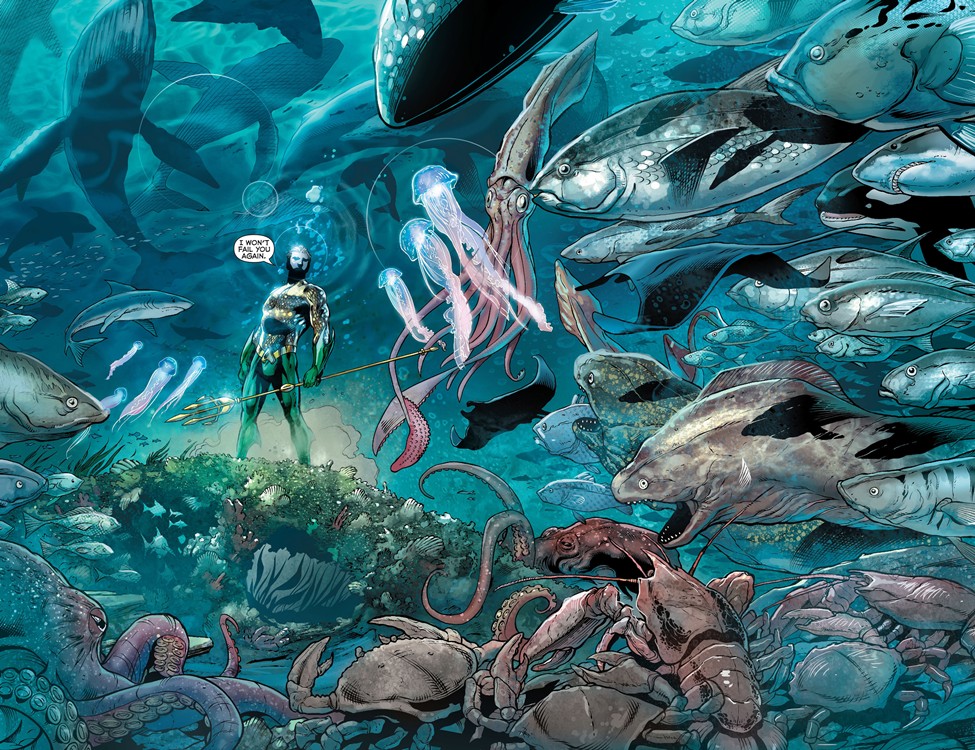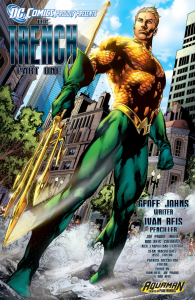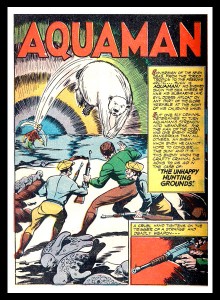 Long-time readers know that I am a dedicated fan of the one true king of Atlantis, Arthur Curry–Aquaman. Since his reboot in DC Comic’s New 52 series, Aquaman has risen above the Justice League pantheon, casually crushing his critics with humor, style, and pure, aquatic power. My original plan was to review the marine science in Aquaman, but, since the Trench, our hero has spent relatively little time in the sea. We can forgive that. Between protecting his old gang, the Others, from arch-nemesis Black Manta, and saving the surface dwellers while reclaiming his crown in Throne of Atlantis, Mr. Curry has been quite busy.
Long-time readers know that I am a dedicated fan of the one true king of Atlantis, Arthur Curry–Aquaman. Since his reboot in DC Comic’s New 52 series, Aquaman has risen above the Justice League pantheon, casually crushing his critics with humor, style, and pure, aquatic power. My original plan was to review the marine science in Aquaman, but, since the Trench, our hero has spent relatively little time in the sea. We can forgive that. Between protecting his old gang, the Others, from arch-nemesis Black Manta, and saving the surface dwellers while reclaiming his crown in Throne of Atlantis, Mr. Curry has been quite busy.
Now, with Aquaman #17, it looks like things are about to change.

So, this is pretty much my all time favorite piece of comic book art. I love that so many invertebrates get starring roles–colossal squid, octopuses, crustaceans of all sorts. I love that whales are relegated to the background, dolphins are barely more than shadows, and elasmobranchs other than sharks are prominently featured. Artists Paul Pelletier and Art Thebert did a fantastic job creating an ocean biodiversity tableau that shuns the Wyland-esque tropes characteristic of the genre. This is a tough, gritty Aquaman. His ocean is not all sunsets and dolphins.
This also settles the longstanding debate about Aquaman’s telepathy. Aquaman talks to fish. Whether they talk back is a different story.





